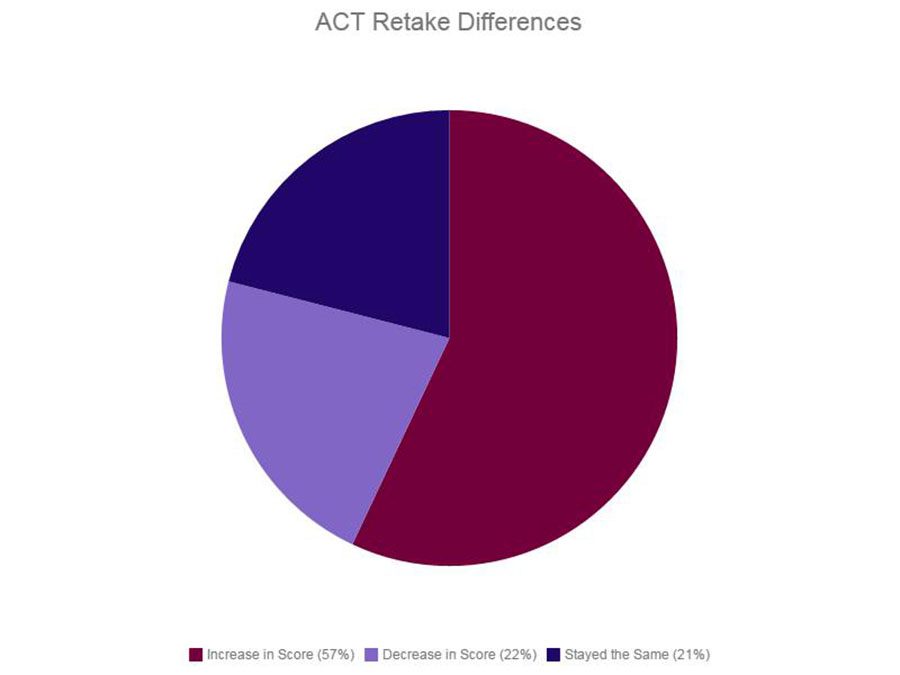Why you should take the ACT more than once
The ACT website has reported that 57% of students of retake the ACT improve their composite score. Students applying to selective colleges should consider taking the ACT a second time to help achieve the best possible score. To achieve your highest score, make sure to make use of prep classes and practice tests available.
November 15, 2016
The ACT- it’s a standardized test that many college-bound high schoolers take their junior year. There are many issues with standardized tests. They disadvantage people from different backgrounds and many people think that colleges are putting too much weight on a test score. Putting all of the issues with the ACT aside, those hoping to attend selective universities after high school should be prepared to take the ACT more than once.
Many people have embraced the idea of taking the test once without studying to get a baseline, then studying specific subjects to get their best possible score. Sophomore Ruby Woletz says that she plans to take the test once without studying and then probably take it a second time. “You get the full experience,” Woletz said when asked why she wouldn’t just take a practice test before taking the official ACT. This testing plan will be lower stress and still leaves students with time to improve.
Ms. Abdullah from the College and Career Center recommended that students who take the ACT in their junior year should take the test a second time because, “that first time, maybe you didn’t know what to expect or didn’t get as prepared as you wanted to be, so now you know what it looks like, what it is.” Ms. Abdullah suggested taking practice tests before the real ACT (make sure to time yourself!) and an ACT prep class. In the past South has offered a prep class but Ms. Abdullah says that might be different this year.
Studying is very important if you are looking to get a high score on the ACT. Both practice tests and prep classes will help students with important test taking skills that are not taught in school.
The popular blog by Prep Scholar (a service that offers online SAT and ACT tutoring) recommends studying the summer before your junior year, taking the test early that fall, preparing throughout the winter to take the test again in the spring. Then, if necessary, trying again the following December. Students applying to competitive colleges should follow this plan because it allows time for studying and retaking the test.
The ACT website says that 57% of those who retake the test increase their composite score. Many colleges including Grinnell and the University of Chicago super score. This means that the college will look at the best scores you have received for each section and combine them for the best result instead of requiring that all test section scores be from one sitting. This allows students to achieve higher composite scores. I personally look forward to taking advantage of super scoring where I can.
In the middle of my freshman year I took the ACT and I am glad I did. Taking this test in ninth grade gave me an idea of the format of timed standardized tests as well as what I might expect my score to be later on. My plan for junior year is to follow the suggested test dates from Prep Scholar. My preparation will include both practice tests and a class as recommended by Ms. Abdullah.
Although it is be beneficial to take the ACT a second or third time, senior Celina Barnett-Cashman advises, “take it more than once but only if you’re gonna actually commit to studying.” There are many benefits to taking the ACT a second time but if you don’t put in any work to improve your score, it is a waste of time and money.
Students applying to competitive colleges should be prepared to study and to take the ACT twice. Taking timed practice tests or a prep class is sure to help. When the College and Career Center finds out more information about prep classes, an email will be sent out to all juniors. Prep classes are first come, first serve, so apply early.







